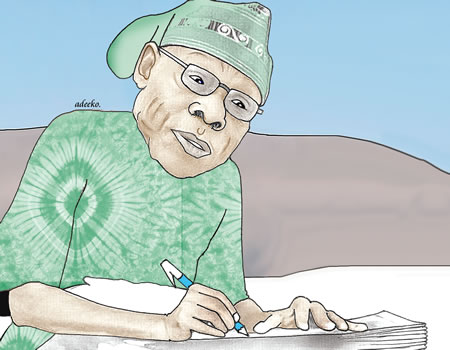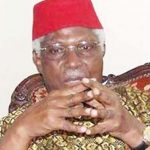Naturally, the press statement has generated a lot of interest across Nigeria. It has attracted comments from the Diaspora and other watchers of politics in Nigeria. The Presidency and a host of other interests within the political society have also responded to the release in varying ways, from those that approve of the general direction and conclusion of the content of the press release to those who accuse the author of misinformation and incitement. However, we think that a distinction should be made between the messenger and the message in order to appreciate the value of the release.
In the press release, the former president made six points in relation to governance as fundamental shortcomings of the current administration. The first is that President Buhari has not been able to identify and deploy available talents in Nigeria to achieve the objectives of managing the economy and foreign affairs. The government has consequently failed to effectively manage the economy. Two, the president has condoned corruption, especially by turning a blind eye to reported cases. Three, the government’s commitment to improving security has been undermined by its failure to stop the herdsmen’s rampage, which has continued with reckless abandon.
Four, the president is clannish and nepotistic in the deployment of personnel. This has been particularly visible in the condonement of corruption or failure to enforce discipline on members of the president’s inner court. Because of these, the “national interest was being sacrificed on the altar of nepotic interest.” Five, the president is unable to manage the internal dynamics of politics in Nigeria. His policies and actions are promoting division and deepening inequality across the country. He has failed to treat all sections of the country fairly. Finally, the president has a penchant for passing the buck, especially blaming unelected officials for the failures of the government. According to Obasanjo, these six points, added to the president’s health condition and the strain of age, make it imperative that he should not run for a second term.
We believe that the points made by former President Obasanjo should not be treated lightly. So far, the responses by the government and the governing party’s officials have not addressed the vital issues raised. Instead, the government is still passing the buck. The responses from government officials merely beg the question. The Minister for Information, Alhaji Lai Mohammed, said that the government had done creditably well in the three key areas that formed its campaign programme: growing the economy, fighting corruption and tackling security. Similarly, the National Working Committee (NWC) of the All Progressives Congress (APC) insisted that the party remained the best option for Nigerians.
We advise the Buhari administration to address the issues raised by former President Obasanjo. They reflect the frustrations and general feelings of Nigerians concerning governance in the country. Some of them are so vital that they are at the very heart of Nigeria’s national integrity as a nation. They call for a rethink and reversal of some of the actions taken by the government in order to arrest the deteriorating governance situation in the country.






